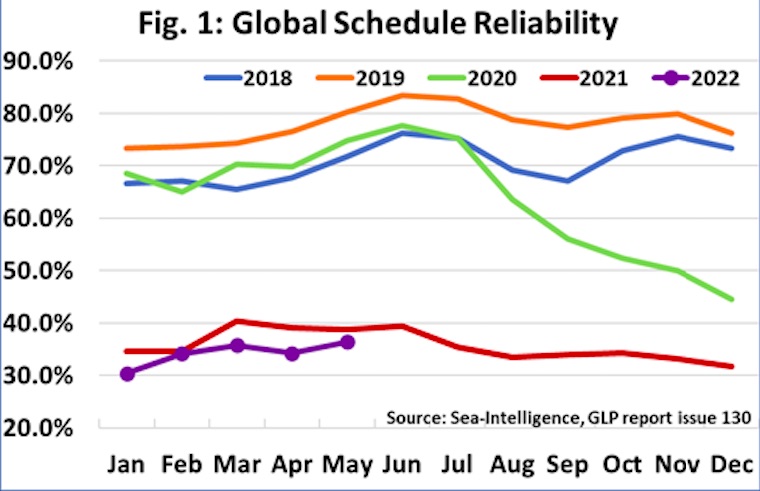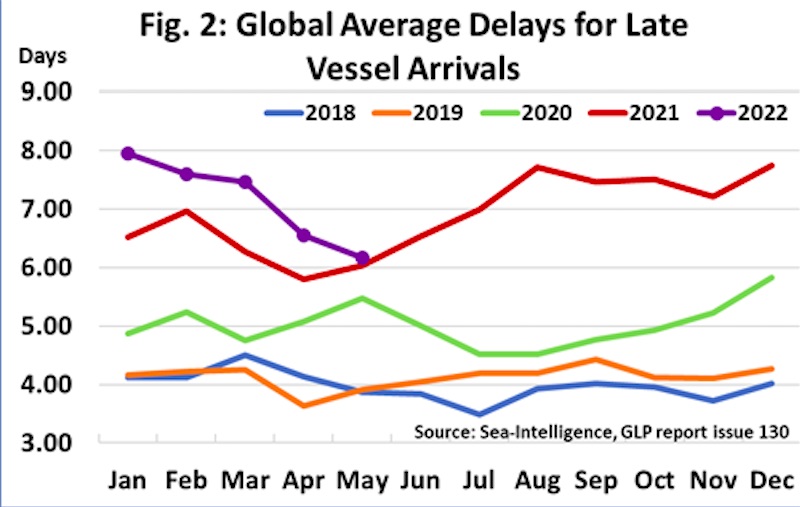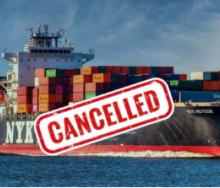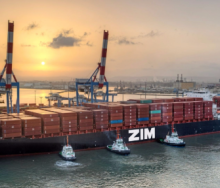Global schedule reliability is continuing to follow the trend seen in 2021, fluctuating within a small range but at a slightly lower base, according to the latest Global Liner Performance (GLP) report published by Sea-Intelligence.
In May, it improved by 2.1 percentage points month-on-month to 36.4%, although it was still down year-on-year by -2.3 percentage points.
This means that the 2022 score has been slightly below the 2021 level in each of the first five months. The average delay for late vessel arrivals decreased once again, this time by –0.37 days to 6.17 in May. “This figure is now firmly below the seven-day mark, but is still the highest across each month when compared historically, albeit with the margin decreasing sharply,” says the maritime consultancy’s CEO Alan Murphy.

In terms of carrier scores, Maersk once again led with 50.3%, followed by Hamburg Süd scoring 43.7%. There were six carriers in the 30%-40% range and six between 20% and 30%.
This article looks at the highlights of the full report, which covers schedule reliability across 34 different trade lanes and 60+ carriers.














